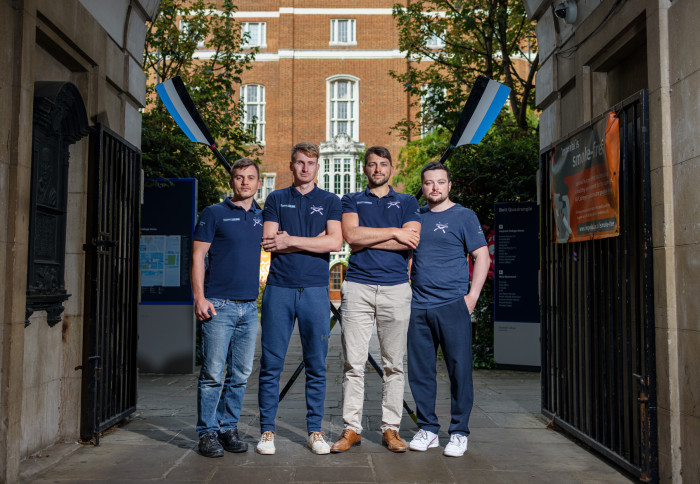Imperial researcher to embark on cross-Atlantic rowing challenge

Rufus Mitchell-Heggs, a PhD student in the Department of Bioengineering, is part of a team planning to row the Atlantic for charity.
The Enginoars are a team of four engineers from the UK and Norway who in December this year will row 3,000 miles unsupported across the Atlantic Ocean. The team, which includes PhD student Rufus Mitchell-Heggs, formed through a common passion for adventure and global sustainability.
The Enginoars aim to support Engineers Without Borders by raising a total of £100,000 over the course of their Atlantic campaign. This has been supported by £10,000 of sponsorship from the College.

'World's toughest row'
Starting in the Canary Islands and finishing 3,000 miles across the Atlantic Ocean in Antigua, the Enginoars will row for two hours on, two hours off, battling waves of up to six meters for up to 40 days.
As engineers, we are navigators and problem solvers, we explore brains, oceans and solutions to sustainability. The Enginoars team
The race deemed ‘the world’s toughest row’ is fully unsupported, meaning that the Enginoars will be bringing all their food, producing fresh water from the sea, charging their equipment with solar panels and propelling themselves forward with oars.
They are expected to row a total of 480 hours, almost non-stop, completing a total of 1.5 million oar strokes. The toll this has on the body is something they hope to study with researchers at the College, applying their skillset as engineers and researchers in a new setting.
They will be studying biomarkers using electrodes from OG Carbon, a startup founded by PhD student in the Department of Chemistry, Owen Griffiths. They will also be studying the effects of their polyphasic sleep (sleeping multiple times), sleeping for two hours on, then two hours off.
The team are also working with Professor Mirko Kovac from the Department of Aeronautics and Imperial's Grantham Institute to use a waterproof drone to capture the ever changing ocean environment.
Endurance, teamwork and competitiveness
Concerned with the immediacy of climate change, the Enginoars decided to partner with Engineers Without Borders UK and Norway. The charities’ mission is to nurture a systemic change in sustainability by creating a new generation of sustainability champions. To achieve this, they facilitate global competitions and give students and young professionals the opportunity to actively participate in developing the solutions to some of the world’s biggest sustainability problems.

The team says: “Each Enginoar is equipped with endurance, competitiveness, teamwork and leadership that has been developed over lives of sailing oceans, international kayak racing, summiting mountains and endurance cycling.
“As engineers, we are navigators and problem solvers, we explore brains, oceans and solutions to sustainability. These skills define us and will be tested on our journey across the Atlantic. We wanted to partner this great adventure with a great cause.”
"Pure adventure"
Rufus, the team's campaign manager, has been working at Imperial for the past four years as a Computational Neuroscientist in the Department of Bioengineering. His research involves using cutting edge neural imaging technology to explore key hypotheses on memory, navigation and social cognition, three things that the team say will be tested on the Atlantic Ocean.
His reasons for taking on this challenge fall into a few categories. He said: “There is the pure adventure of crossing an unknown and changing terrain, facing challenges that test your physicality, resilience and mental fortitude. Then there are the skills acquired from managing a campaign – the planning, meeting deadlines, financing, training and most importantly – the teamwork.”
Image credits: Brendan Foster
Article text (excluding photos or graphics) © Imperial College London.
Photos and graphics subject to third party copyright used with permission or © Imperial College London.
Reporter
Joanna Wilson
Communications Division